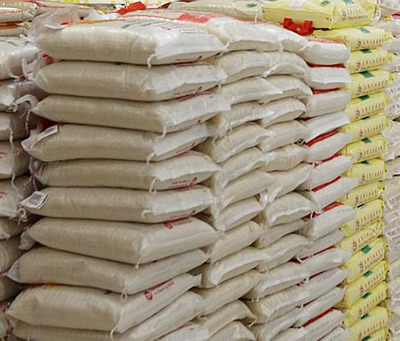The recent surge in the price of imported high-quality rice in Nigeria, which has increased by 144.77 percent year-on-year, highlights the challenges stemming from the Federal Government’s delay in implementing its duty-free food policy. The National Bureau of Statistics reports that this price rise comes amid attempts to tackle inflation, which has severely impacted the livelihoods of many Nigerians. The government had proposed a 150-day duty-free import window for key food commodities such as maize, brown rice, wheat, and cowpeas in July 2024, aiming to provide relief from the soaring costs. Although the policy announcement was made, its implementation has been ambiguous, leaving many to question its effectiveness in curbing rapidly escalating food prices.
Indeed, following the announcement of the duty-free window, the cost of imported rice has edged higher, demonstrating how policies can lag behind the market’s immediate needs. The price of a kilogram of imported rice rose from N2,329.05 in July to N2,403.86 in September 2024, marking a 3.21 percent increase in just two months and over doubling from N982.07 per kilogram just one year prior. The average price for a 50kg bag of imported rice also surged alarmingly from N49,103 in September 2023 to N120,193 in 2024. Regional disparities are evident, with Kogi State experiencing the highest price at N3,180.99 per kilogram, while Katsina recorded the lowest at N1,892.33, further layering the complexity of the food pricing crisis.
The troubling trend is not limited to imported rice alone; other rice varieties are also experiencing substantial price hikes. For instance, agric rice prices increased from N1,882.39 to N1,965.64, reflecting a 4.42 percent rise from July to September, with a year-on-year increase of 146.33 percent. Notably, broken rice (Ofada) saw an even steeper rise of 5.61 percent within the two months, with an exorbitant annual increase of 213.36 percent. Locally produced rice is also vulnerable to inflationary pressures, with loose local rice rising by 4.57 percent compared to the previous months, bringing the total yearly increase to nearly 153 percent. These sharp increases across various rice categories illustrate the overarching pressures exerted by market forces on food pricing in Nigeria.
The price changes permeate beyond rice to other staples such as maize and wheat. White maize grain saw a modest increase of 3.58 percent in price from N1,028.33 to N1,065.14, while yellow maize followed suit with a 2.69 percent rise. The elevation of wheat flour prices, particularly the Gold Penny 2kg pack, further underscores the inflation crisis as it rose by 2.45 percent, leading to a yearly increase of a staggering 135.56 percent. The interlinked nature of rising food prices suggests widespread economic pressures that are sending ripples through various sectors beyond just rice and maize.
Compounding these issues is the disappointing progress of the government’s intended zero-duty and value-added tax exemption policy targeted at basic food items. Despite initial announcements suggesting comprehensive changes, bureaucratic obstacles and failures in communication have stymied advancements on the implementation front. The lack of transparency regarding the approved importers for the duty-free scheme signifies a derelict bureaucratic process that has fostered uncertainty among traders and consumers alike. This has resulted in continued increases in the average prices of imported and local food items, undermining the policy’s intention to provide economic relief to Nigerians facing soaring living costs.
Amidst these rising prices, the dismal inflation data released by the National Bureau of Statistics paints a grim picture. The Food Price Index jumped by 37.7 percent from September 2023 to September 2024, and the imported food inflation index ascended to 39.5 percent during the same period. This emphasizes how inflation is negatively affecting household food security across Nigeria, particularly concerning staple foods such as rice. The price hikes can be attributed to multifaceted factors including the weakening naira, elevated import costs, and the uncertain implementation of government policies aimed at alleviating food prices. The situation creates a pressing need for effective governance, timely policy execution, and concerted efforts to mitigate the impact of inflation on the nation’s food supply and overall economy.














